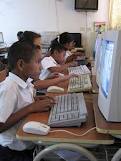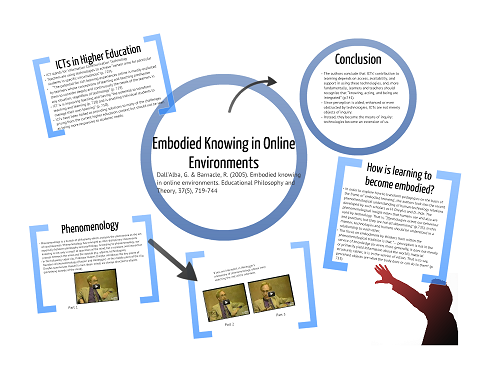Sandbox:The Psychology & Phenomenology of Educational Technology: Psychological & Phenomenological Foundations
Welcome to our wiki page,the learning community for the week of November 6th - 13th, 2011. Our group has examined the Psychology and Phenomenology of Educational Technology, we have created this learning space to include primary and secondary resources, media learning activities and summaries to assist you in your understanding of this topic. Please begin by reviewing the suggested agenda for the week (this is a flexible approach to learning).
Group Participants
Rachel Graf:
French as a Second Language Teacher for two years in Toronto, Ontario. I enjoy learning new ways to engage students and incorporate technology into my language classes. I am passionate about teaching and learning and am always looking for ways to enhance my teaching practices.
Hussain Luaibi:
ESL/ ELSA teacher for about 18 years. Worked and lived in Yemen (3 years), Russia-Moscow (9 years). Immigrated to Canada in 2006. I love computing in general and politics. I always try to use educational technology tools in my classes because I believe they really enhance the process of learning. I have two little kids. Trilingual.
Catherine Ranson:
Educator/Administrator in Dental Hygiene Education for the past 22 years in Ontario. My background is in science, particularly oral science and access to oral care and overall wellness for the public. Our educational focus in healthcare is to integrate technology to enhance learning using Simulation, Virtual Learning and IPE.
Danielle Boyd:
Technology & Math Educator for 6 years within Nova Scotia, Canada. In addition, I serve as a Technology Mentor within my school district working with fellow educators as they work towards incorporating technologies into their daily lessons and activities. Most recently, I have been working within my district as we are in phase 2 of the implementation of a new Student Information System. I enjoy working and learning with students both young and old as they problem-solve through various technologies.
AGENDA
Sunday November 6th to Tuesday November 8th : Begin with reading Shirley Turkle's article and video clip (the links are posted below) with a brief summary of the article and video. Shirley Turkle's video clip presentation provides insight to her psychoanalysis and phenomenology of the integration of technology and how it affects children.
Next, read Dall'Alba & Barnacle's article (the link is posted below) with a brief summary of the article and a Prezi presentation related to the article.
Wednesday November 9th : SOUL DAY - time to reflect on the modules reading/learning resources
Thursday November 10th & Friday November 11th : Participate and post responses to the discussion questions in the UBC Vista Learning space for this course under module 8
Friday November 11th : End of Day - review the discussion summary for this weeks learning module
Glossary
Affective Computing - [1]
Artificial Intelligence - [2]
Information Communication Technology -[3]
Human Technlogy - [4]
Phenomenology - [5]
Psychology - [6]
Required reading and Activities
1. Turkle, S. (2004). Whither psychoanalysis in computer culture. Psychoanalytic Psychology, 21(1), 16-30
2. Relational Artifacts: From Virtual Pets to Digital Dolls (Danz Lecture Series presentation of Dr. Turkle) [video clip]
3. Dall’Alba, G. & Barnacle, R. (2005). Embodied knowing in online environments. Educational Philosophy and Theory, 37(5), 719-744.
Psychoanalysis in Computer Culture: Turkle’s approach
Turkle, S. (2004). Whither psychoanalysis in computer culture. Psychoanalytic Psychology, 21(1), 16-30
Turkle2004.pdf
With the spread of technology and how it has changed our lives, there has been another field that goes side by side: psychology. This time the psychology is dealt with as something connected directly to the computer or triggered by it. This article tackles the relationship between the human brain and the computer and how they work side by side.
One of the most complex aspects of the modern computer is its ability in affecting human brain. We are surrounded by hundreds of computing gadgets that have established a strong relation with their users. The way computers have been dealt with denotes that they have taken a serious position in the human way of thinking. Turkle highlighted the fact that computers were “objects” and they moved to be considered as “subjects” by their users. The field is very complex and needs a deep psychoanalysis of how users are affected by these “tools”.
Turkle also stressed upon the use of internet in our life and how the latter has affected our identities radically. Being a way from people , sitting in front of a computer screen, one can really do a lot of things. One of the significant things that a user can use is the ability to assert one’s feelings with no psychological hurdles. Turkle didn’t say this is negative. On the contrary, she mentioned that it can be a positive step towards building or pruning one’s character.
The other point Turkle tackled in her article is the closeness of the technologies to human being as a real “companion”. She called them “relational artifacts”. In her research, Turkle focused on the child’s perception of the talking and moving toys. She tried to look at things through a child’s eye which considered those toys as having great cognitive capabilities.
DISCUSSION QUESTIONS
1. How attached are we to technologies?
2. Are we technology addicts? Or technology dependents?
3. Do you think that technologies can be a real companion which can feel its users?
4. Are we on the right track in the way we use technologies?
5. Are we on our own way of becoming cyborgs? Or have we already passed this stage?
Relational Artifacts: From Virtual Pets to Digital Dolls (Danz Lecture Series Presentations of Dr. Turkle) - Video Clip
Dr. Shirley Turkle engages the viewer with the concept of “new objects” and how these new objects affect identity. She presents that today’s theme is not about what children are doing and learning with technology but about what is technology doing and teaching them. The “subjective computer” the distinction between the subjective and instrumental computer, what the computer does for us and what the computer is doing to us.
Embodied Knowing in online environments - Dall'Alba & Barnacle's Article
Follow the following link to view a Prezi presentation which summarizes the Dall'Alba & Barnacle article:
http://prezi.com/n_fyqdzzlzk-/embodied-knowing-in-online-environments/
DISCUSSION QUESTIONS
1. How can phenomenological thinking contribute to our understanding of educational technology?
2. Do human-technology relations within online environments benefit performance in education? Explain why.
3. Do you think that the incorporation of additional non-visual elements into curriculum design, as proposed in the conclusion of the article, would be beneficial to learning? What would these non-visual elements be?
4. How can educators promote embodied knowing in online learning contexts?
Additional information on the topic, please read to the following radio interview with Sherry Turkle:
http://www.transmitmedia.com/svr/vault/turkle/turkle_transcript.html
http://www.bbc.co.uk/news/magazine-15503391
In this interview Jeana Tahnk discusses the role tech gadgets play in the lives of a child today.
Interview with Jeana Lee Tahnk on CBC radio's Spark
DISCUSSION QUESTIONS
1.How is the argument proposed by Tahnk related to concept of the “relational artifact” presented by Turkle (2004)?
2.What are potential repercussions of an over reliance on technologies to one’s identity of the self?
Artifical Intelligence Video Clip - http://youtu.be/d2_8z9oMjwo
Virtual Pets Video Clip - http://youtu.be/S9rLfNghMNE
References
1. Turkle, S. (2004). Whither psychoanalysis in computer culture. Psychoanalytic Psychology, 21(1), 16-30
2. Relational Artifacts: From Virtual Pets to Digital Dolls (Danz Lecture Series presentation of Dr. Turkle) [video clip]
3. Dall’Alba, G. & Barnacle, R. (2005). Embodied knowing in online environments. Educational Philosophy and Theory, 37(5), 719-744.
4. http://en.wikipedia.org/wiki/Psychology
5. http://en.wikipedia.org/wiki/Phenomenology_(philosophy)
6. http://en.wikipedia.org/wiki/Artificial_intelligence
7. http://en.wikipedia.org/wiki/Affective_computing







